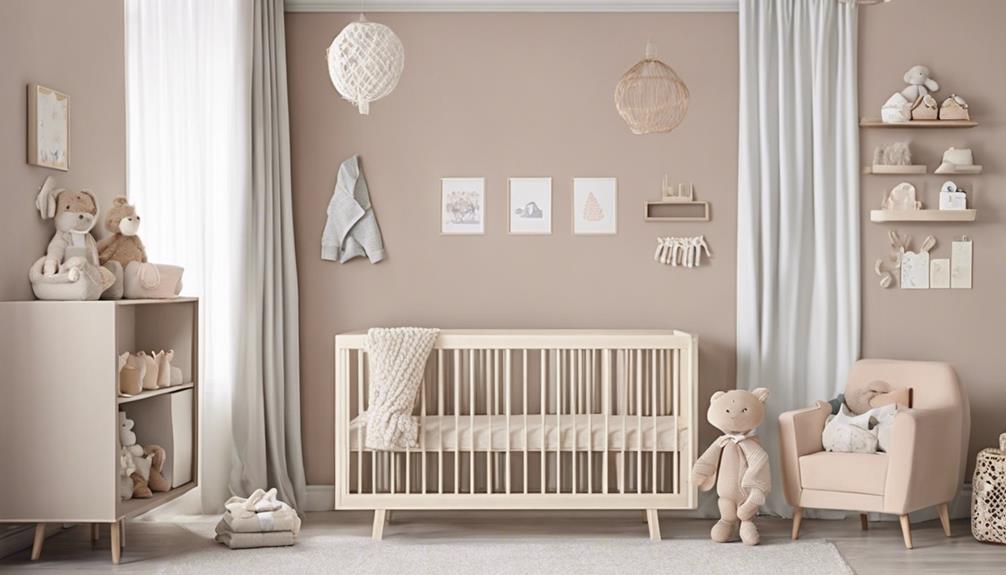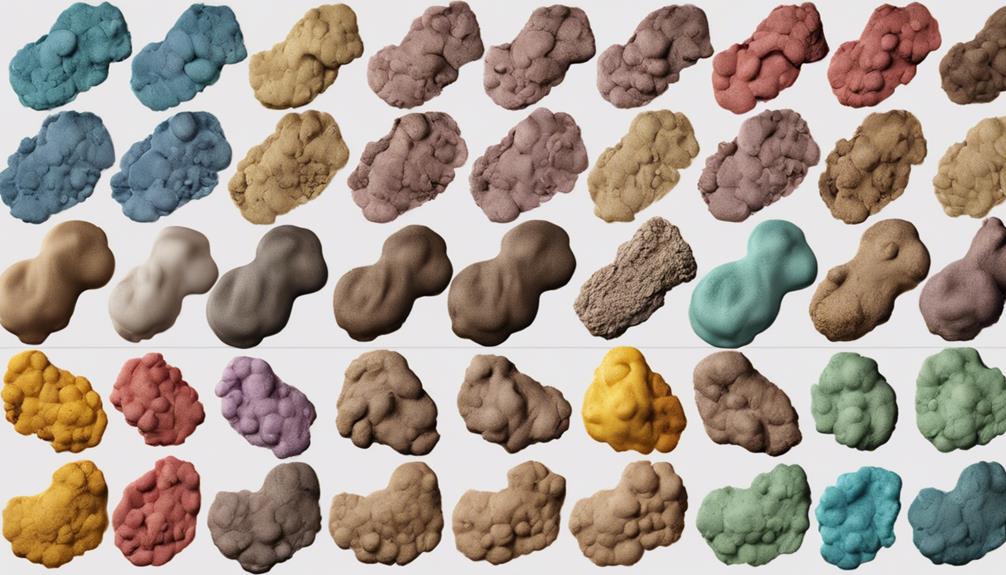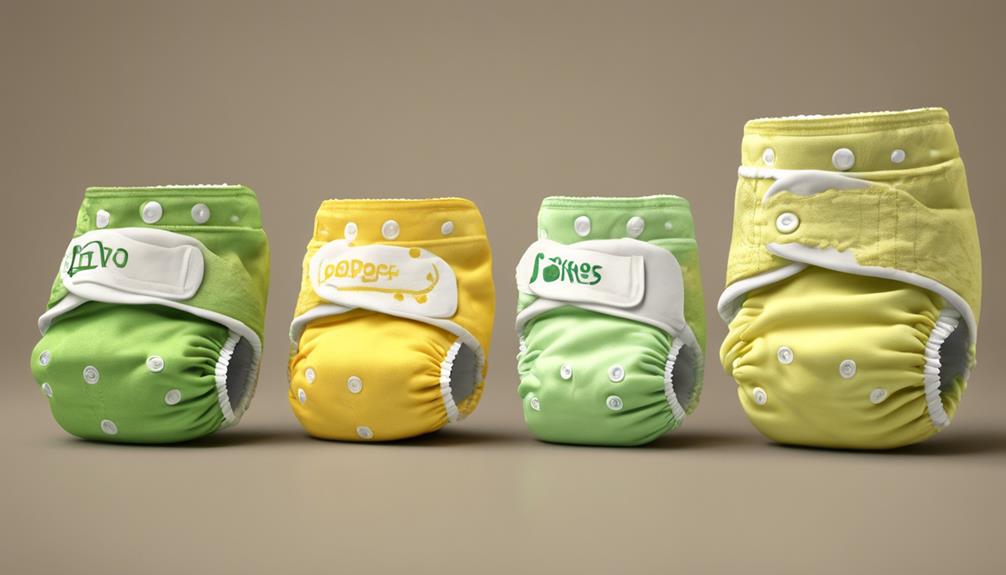When it comes to calming newborn hiccups every day, you might feel like you're piloting uncharted waters. But fear not, as this guide will steer you in the right direction with practical tips and proven methods.
From understanding the triggers to implementing gentle techniques, each step will bring you closer to soothing those pesky hiccups. So, are you ready to discover the secrets to keeping your little one hiccup-free and content?
Key Takeaways
- Patting or rubbing the baby's back can relax the diaphragm and alleviate hiccups.
- Holding the baby upright after feeding helps release trapped air bubbles and prevent hiccups.
- Offering a pacifier can soothe the diaphragm and effectively stop hiccups.
- Consulting a pediatrician is crucial for persistent or concerning hiccups in newborns.

Philips Avent Soothie Baby Pacifiers – 100% Silicone Pacifiers for Babies 0-3 Months, One-Piece Design, BPA-Free, Extra Durable, Green, 4 Pack, Model SCF190/41
Newborn pacifier 0-3 months supporting baby’s natural suckling need: designed to fulfill newborns' natural suckling reflex to self-soothe…
As an affiliate, we earn on qualifying purchases.
As an affiliate, we earn on qualifying purchases.
Understanding Newborn Hiccups
If your newborn is experiencing hiccups, understanding the cause can help you address them effectively and provide comfort. Baby hiccups occur due to spasms of the diaphragm muscle, resulting in quick and jerky contractions. Factors such as overfeeding, eating too quickly, or swallowing air can trigger these hiccups in newborns.
While hiccups are common and usually not a cause for concern, they can disrupt feeding and sleep routines for your little one. Fortunately, in most cases, hiccups will resolve on their own without intervention.
To prevent hiccups, you can try feeding your baby in an upright position, ensuring they burp frequently during feeds, and feeding them smaller amounts more frequently. If your newborn experiences persistent or concerning hiccups that last for an extended period or seem to cause distress, consulting a pediatrician is recommended.
Your baby's healthcare provider can offer guidance specific to your baby's needs and provide reassurance regarding any worries you may have about their hiccups.

JoliCeli Interactive Electronic Pet Plush Toy, Plush Doll Soothe Gift for Toddlers Birthday, Mom, Expectant Mother, Pregnant Woman
Features a gentle patting mechanism (dinosaur design) with adjustable remote-controlled Interactive speeds
As an affiliate, we earn on qualifying purchases.
As an affiliate, we earn on qualifying purchases.
Gentle Techniques for Calming Hiccups

To help calm your newborn's hiccups, gentle techniques such as patting or rubbing their back can aid in relaxing the diaphragm and stopping the hiccups. Holding your baby in an upright position during hiccups can help release trapped air bubbles, easing their discomfort. Offering a pacifier may also soothe the diaphragm and potentially halt the hiccups. Remember to take short breaks during feeding sessions to prevent hiccups caused by fast or excessive eating. Creating a calm and soothing environment for your baby can reduce both the frequency and intensity of hiccups they experience.
| Calming Techniques | Description |
|---|---|
| Patting or Rubbing Back | Helps relax the diaphragm and stop hiccups. |
| Upright Position | Releases trapped air bubbles, aiding in calming the hiccups. |
| Offering Pacifier | Soothes the diaphragm and may help stop hiccups. |
| Taking Feeding Breaks | Prevents hiccups from fast or excessive eating habits. |
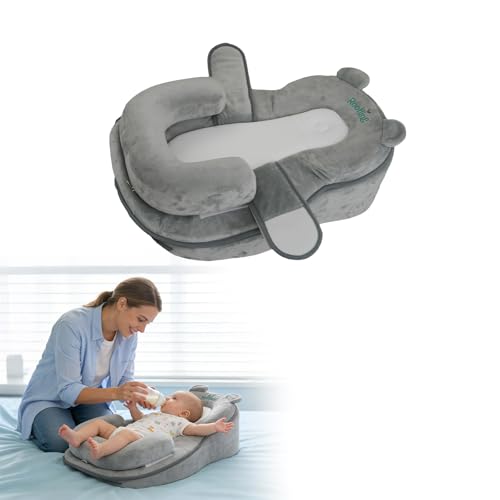
XFaa Rootling Baby Feeding Pillow, Anti Overflow Feeding Pillow for Reducing Spit-Up, Safety Nursing Pillow, Baby Lounger Reflux Wedge Breastfeeding, Removable top and Bottom (Gray, Small)
【Dual-Function Detachable Design】: The removable wedge segment transforms this pillow into a flat surface when detached. Perfect for…
As an affiliate, we earn on qualifying purchases.
As an affiliate, we earn on qualifying purchases.
Tried-and-True Remedies for Hiccups

For effective relief from newborn hiccups, consider these tried-and-true remedies.
Burping your baby frequently during and after feedings can help prevent hiccups caused by trapped air.
Offering a pacifier for your baby to suck on may relax the diaphragm and stop hiccups.
Gently rubbing your baby's back and holding them upright can release trapped air bubbles and alleviate hiccups.
Using gripe water, which contains soothing herbs like ginger and chamomile, could provide relief for stomach issues contributing to hiccups.
Remember to avoid traditional remedies like making your baby jump or pulling their tongue, as these methods lack scientific basis and may be unsafe for newborns.

Mommy's Bliss Gripe Water Original, Infant Gas & Colic Relief, Gripe Water for Babies, Gentle & Safe, 2 Weeks+, 4 Fl Oz (Pack of 1)
MOMMY'S BLISS ORIGINAL GRIPE WATER: Mommy's Bliss Gripe Water is the bestselling supplement for infant gas and colic…
As an affiliate, we earn on qualifying purchases.
As an affiliate, we earn on qualifying purchases.
Preventing Recurrence of Hiccups
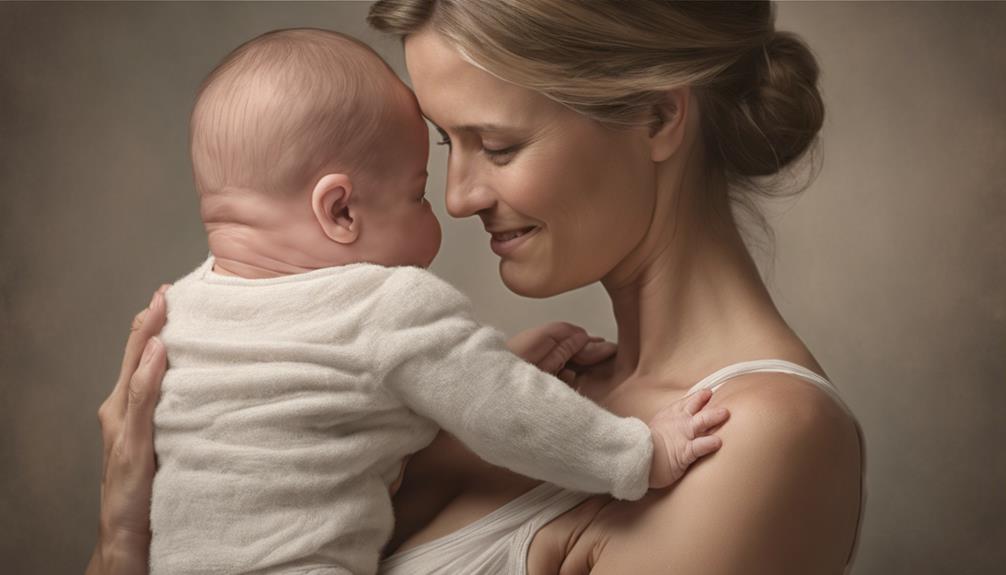
To prevent the recurrence of hiccups in your newborn, focus on offering smaller, more frequent feedings and guaranteeing proper burping techniques after each feeding session. By using correct bottle nipple sizes and feeding positions, you can reduce the likelihood of hiccups reoccurring. Remember to maintain a calm and soothing environment during feedings to prevent stress-related hiccups in babies. If despite your efforts, the hiccups persist, do not hesitate to consult with a healthcare provider for personalized advice on preventing the recurrence of hiccups in your newborn.
| Feeding Tips | Burping Techniques |
|---|---|
| Offer smaller, more frequent feedings | Gently pat or rub your baby's back after feeding |
| Use correct bottle nipple sizes | Hold your baby upright against your chest |
| Maintain a calm feeding environment | Sit your baby upright and support their head |
| Guarantee proper feeding positions | Burp your baby every 2-3 ounces during feeding |
| Consult with a healthcare provider | Try different burping positions like over the shoulder or sitting on your lap |
Seeking Medical Advice if Needed

If your newborn's hiccups are causing distress or you have concerns about their health, seeking advice from a healthcare provider is recommended. While occasional hiccups are normal in babies and often harmless, persistent or frequent bouts of hiccups, especially when accompanied by symptoms like vomiting, could indicate gastroesophageal reflux disease (GERD). In newborns, particularly preterm infants, hiccups are common, but monitoring any changes in frequency or duration is essential.
Signs such as irritability, spitting up, or refusal to feed should prompt seeking medical advice promptly.
Consulting a medical professional can help identify any underlying health issues causing the hiccups and determine the best course of action. Regular check-ups with a pediatrician are vital for monitoring your baby's hiccups and overall well-being. Remember, your baby's health and comfort are a top priority, and seeking timely medical advice can provide reassurance and appropriate interventions if necessary.
Frequently Asked Questions
How Do I Stop My Baby From Having Constant Hiccups?
To stop your baby from having constant hiccups, try burping frequently, offering a pacifier, avoiding overfeeding, and keeping them upright after meals. For personalized advice, consult your baby's healthcare provider. Remember, small steps can make a big difference!
Is It Normal for Newborns to Have Hiccups Everyday?
Yes, it's normal for newborns to have hiccups every day. Their tiny systems are adjusting. To ease it, try gentle burping, feeding adjustments, and cuddles. If hiccups persist or worry you, consult a healthcare provider for reassurance.
Is It OK to Lay My Newborn Down With Hiccups?
You can lay your newborn down with hiccups; it's safe. If they seem uncomfortable or hiccups persist, consulting a pediatrician is wise. Keeping a baby upright if they spit up with hiccups from reflux can help.
What Is the Best Position to Hold a Newborn With Hiccups?
To soothe newborn hiccups, gently hold your baby in an upright position, supporting their head and neck. Pat their back or keep them straight to aid in releasing trapped air. Avoid slouching for better digestion.
Conclusion
As you navigate the world of calming newborn hiccups, remember that you hold the key to soothing your little one's discomfort. Like a gentle breeze on a hot summer day, your love and care can bring relief and comfort.
Trust in your instincts and the tips provided in this guide to help your baby find peace and rest. You're their greatest source of comfort – embrace that role with confidence and love.


